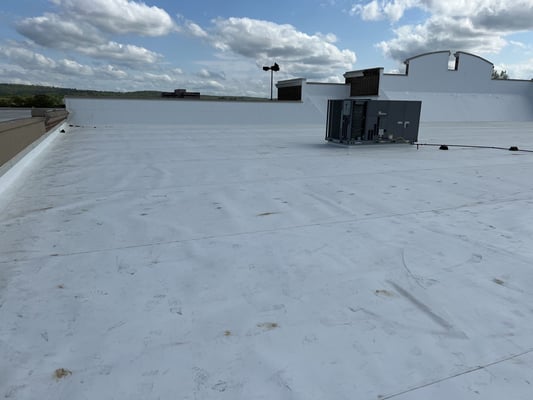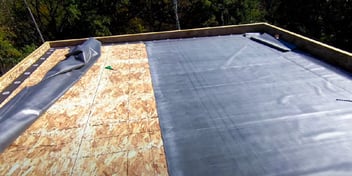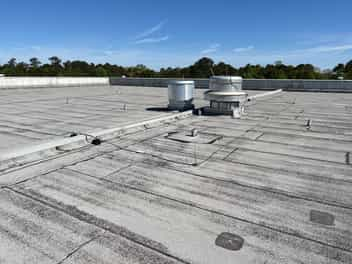- Home »
- Learningcenter »
- Tpo vs pvc roofing
TPO vs PVC Roofing Material: A Comprehensive Comparison

Is TPO or PVC the better choice for you?
When it comes to roofing, there are many different options available to homeowners and businesses. Two of the most popular choices are TPO (Thermoplastic Olefin) and PVC (Polyvinyl Chloride) roofing systems. Both of these materials have their own unique benefits and drawbacks, and understanding the differences between them can help you make an informed decision when it comes time to replace or repair your roof.
Benefits of TPO Roofing:
- Durability
- Energy efficiency
- Ability to withstand extreme weather conditions
- High resistance to UV rays
- Easy to install and repair
- More affordable
- Environmentally friendly (can be made with recycled materials)
TPO (Thermoplastic Olefin) is a single-ply roofing system made from thermoplastic olefin, a synthetic rubber compound. This material is known for its durability, energy efficiency, and ability to withstand extreme weather conditions. TPO roofing is also highly resistant to UV rays, which makes it a great choice for areas with a lot of sun exposure. In addition, TPO is easy to install and repair, making it a cost-effective option for many homeowners and businesses.
One of the major benefits of TPO roofing is its environmentally friendly nature. TPO can be made with recycled materials, which helps to reduce the amount of waste in landfills. This makes TPO a popular choice among homeowners and businesses that are looking to reduce their environmental impact.
Benefits of PVC Roofing:
- Durability
- Resistance to chemicals
- Ability to withstand extreme weather conditions
- High resistance to UV rays
- Longer lifespan
- Highly resistant to punctures and tears
- Cost-effective in the long run
PVC (Polyvinyl Chloride) is another popular single-ply roofing system made from polyvinyl chloride, a type of plastic. PVC roofing is known for its durability, resistance to chemicals, and ability to withstand extreme weather conditions. Like TPO, PVC roofing is highly resistant to UV rays, which makes it a great choice for areas with a lot of sun exposure.
One of the major benefits of PVC roofing is its longer lifespan compared to other roofing materials. PVC roofing is also highly resistant to punctures and tears, which makes it a great choice for areas with a lot of foot traffic or other potential sources of damage.
In terms of cost, TPO roofing is often considered to be more cost-effective in the short-term due to its easy installation and repairs. However, PVC roofing is considered to be more cost-effective in the long run due to its longer lifespan and resistance to damage.
Ultimately, the choice between TPO and PVC roofing will depend on your specific needs and preferences. TPO roofing is a great choice for those looking for a durable, energy-efficient, and environmentally friendly option. PVC roofing is a great choice for those looking for a long-lasting, highly resistant to damage option. Both TPO and PVC roofing systems are able to withstand extreme weather conditions, and have high resistance to UV rays. It's important to consult with a professional roofing contractor to determine which option is best for your property.
It is important to note that both TPO and PVC roofing systems have their own unique benefits and drawbacks, and understanding the differences between them can help you make an informed decision when it comes time to replace or repair your roof. It is always best to consult with a professional roofing contractor to determine which option is best for your property and budget.
 Call (678) 365-3138
Call (678) 365-3138



